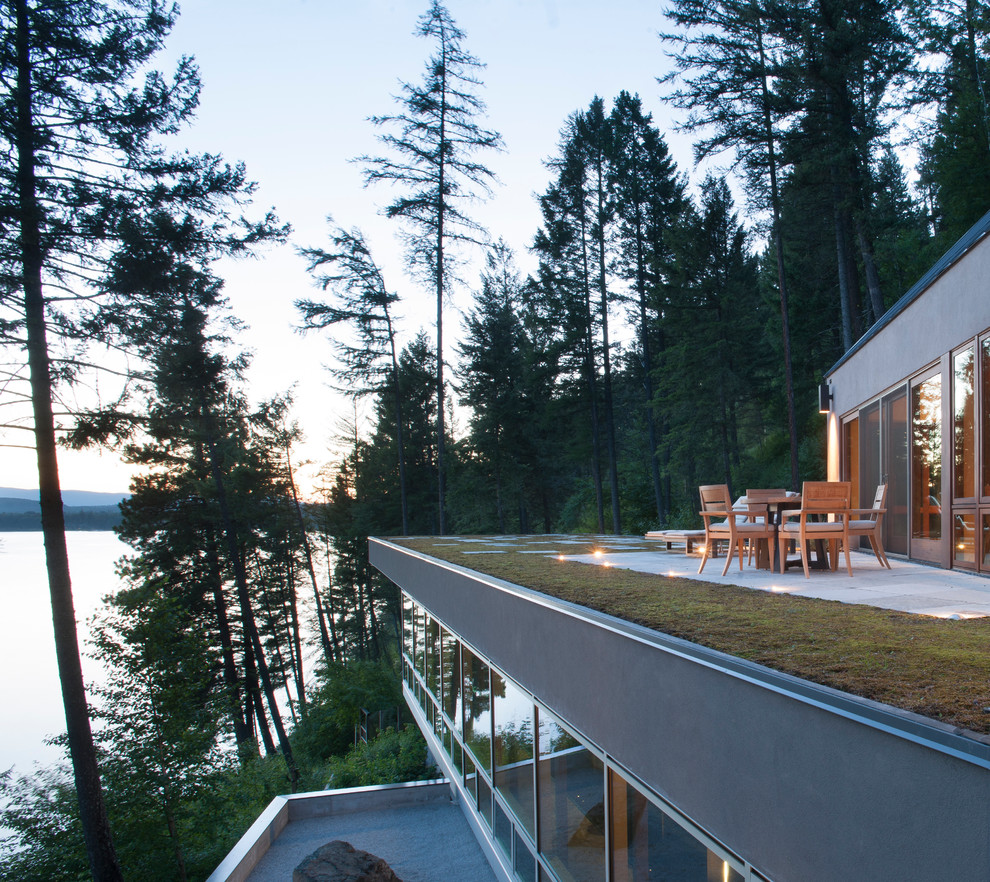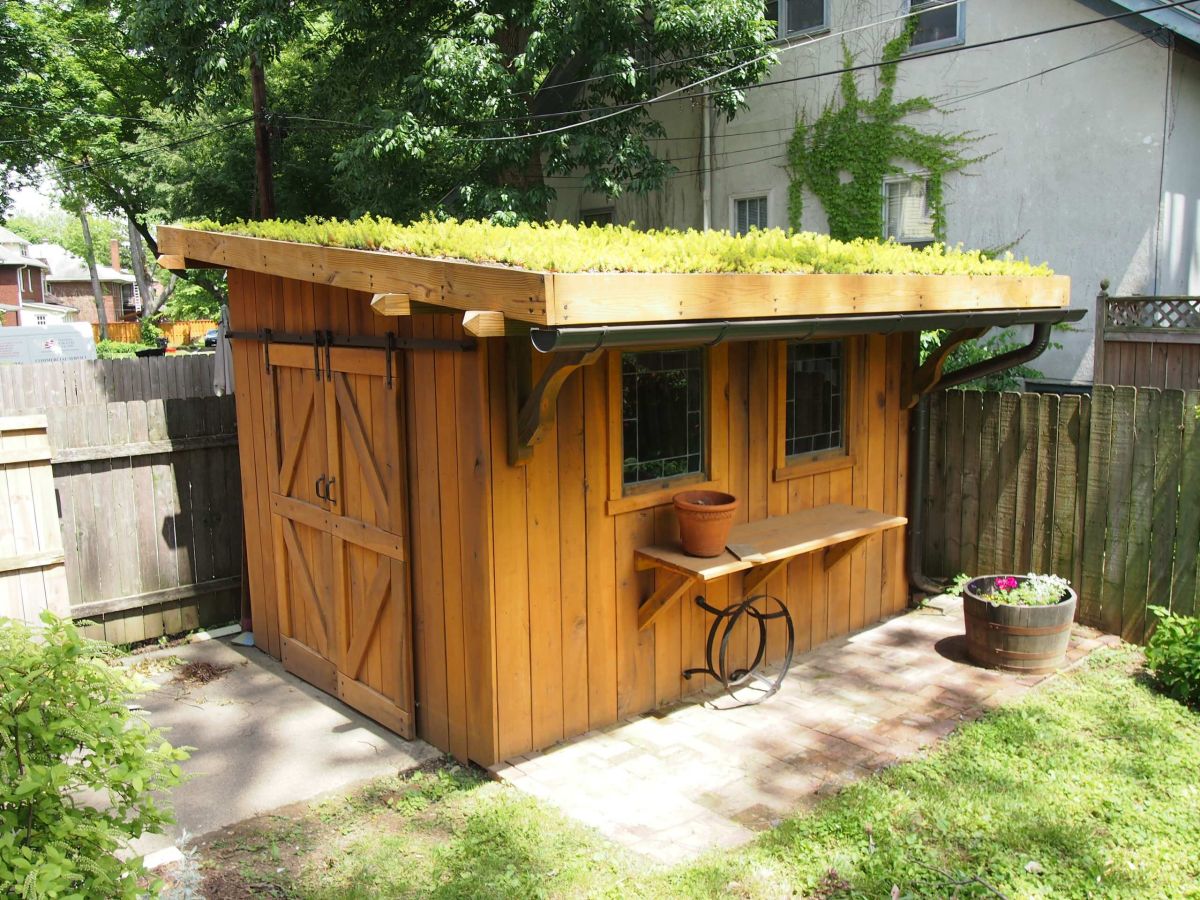You can put a green roof on a chicken coop as long as the roof is structurally sound. Make sure your chickens aren’t able to get on the roof, or they’ll scratch up the plants and dirt.
Cons:
A green roofing system provides a decorative touch to the edge of this urban building’s roof. It makes the space feel more high-end and natural.
What are the Three Types of Green Roofs?
According to the EPA, a simple extensive green roof costs as little as per square foot. Intensive green roofs cost per square foot. Maintenance costs for green roofs average All green roofs require structural support for the weight of the soil, vegetation, and water, as well as waterproof roofing membranes.
Green roofs can save thousands of dollars in energy costs over their lifespan. They increase roof insulation and reduce energy bills. But with the savings comes a higher installation cost and maintenance.
Green roofs aren’t just for looks. They can improve air quality, reduce heating and cooling costs, and increase the lifespan of flat and low-sloped roofs.
There are three types of green roofs, each at a different price point, maintenance level, and with unique growing capabilities. Intensive green roofs are popular for creating gardening and recreation space on top of buildings, while extensive green roofs are more common on residential structures.
How are Green Roofs Installed?
Intensive green roofs have several layers. Extensive and semi-intensive green roofs can be built-up or installed with a tray containing soil and vegetation.
Here’s the difference between the types of green roof systems and what to know if you’re considering one.
The post What are Green Roof Systems? appeared first on Homedit.
- Structural support
- Vapor control
- Insulation
- Roofing membrane support
- Waterproof and root repellent barrier
- Drainage Layer
- Filter
- Soil/Growing Medium
- Vegetation
How Much Do Green Roofs Cost?
Green roof systems contain layers of waterproof roofing materials with vegetation on top. They work for flat and low-sloped roofs.
The Pros and Cons of Green Roofs
Extensive green roofs feature a shallow growing area of fewer than six inches. They house a limited variety of vegetation, like mosses, sedums, and grass. Since there is no need for drainage or irrigation systems on extensive green roofs, they’re the lowest maintenance and lowest cost option.
Intensive green roofs are more advanced, featuring deep soil, irrigation systems, and drainage. Because of the advanced features, intensive green roofs are ideal for growing various plants and can be used to create recreation spaces on top of buildings.
- Increased insulation – The soil and vegetation of green roofs increase a building’s insulation and can help reduce energy costs.
- Longer lifespan of the roof – A roof covered in vegetation is protected from the sun’s UV layers and lasts longer than a typical flat roof.
- Improved drainage – Green roofs can absorb water during a rainstorm. The roof releases excess water at a slow rate for better drainage.
- Improved air quality – Adding a green roof can improve air quality.
- Can create a recreation space – Intensive green roofs can create community gardens and recreation spaces in apartment buildings.
A typical intensive green roof will have nine layers, including:
- Structural load – Since green roofs increase the weight on the roof, they need proper support.
- Cost – A green roof is more expensive to install and maintain than a regular flat roof.
- Maintenance – While an extensive green roof is maintenance-free, an intensive roof will require a lot of care.
What Do Green Roofs Look Like?
Green roofs average 40 to 50 years but can last longer depending on location and maintenance.
Green Roof Provides Patio Space on Spa Roof

Semi-intensive roofs are a meet-in-the-middle between intensive and extensive roofs. They feature deep soil, which allows for a variety of plants. They require a medium level of maintenance and are mid-priced.
Garden Shed with Green Roof

Green roofs can take on many appearances – from rooftop vegetable growing areas to a layer of moss. Here are three examples of green roofs.
Green Roof with Decorative Shrubbery


Frequently Asked Questions (FAQ)FAQ
How long do green roofs last?
There are three types of green roofs – extensive, intensive, and semi-intensive.
Are green roofs worth it?
There are three types of green roofs. Extensive green roofs are the most simple and require the least maintenance. Intensive green roofs are advanced and allow for many kinds of vegetation and recreation areas. But with advanced green roofing systems comes the time and cost of maintenance.
Can you put a green roof on a chicken coop?
A simple green roof on this garden shed protects the roof from the sun’s harsh rays and adds an organic appearance. If you want to test a green roofing system, a small building like this is a great first project.
Final Thoughts
The green roof on this spa provides a yard-like roof entertainment area. Rather than filling the roof with various plants, a simple layer of grass works for the patio-like setting.
Pros:
Green roofs are more than pretty. They come with many advantages, but there are some concerns, too.